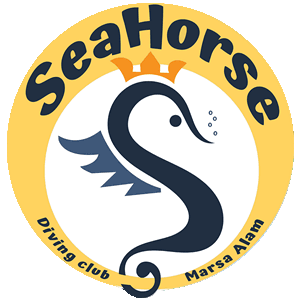Safety First!
Even though scuba diving is safer than driving, skydiving and even marathon running (!), it is not a risk free activity and we, at SeaHorse, are committed to diving & snorkeling safety practices, so that our guests could enjoy in the safest way possible. We are affiliated to and comply with the safety standards set forth by PADI, the world’s leading scuba diver training organization.
Health
- Please note that there are some medical contraindications to scuba diving, the most common being: asthma, epilepsy, heart disease, pregnancy and ear/nose/throat disorder. Go through the list of these contraindications here;
- Before any diving activity with us, you will have to fill in and sign the Diver Medical Questionnaire, which you can download here;
- If you have any pre-existing medical conditions indicated in the questionnaire and/or are taking prescribed medications (other than the contraceptive pill), then you must provide a medical approval (maximum 1 year old) by a licensed doctor prior to any diving activity.
Altitude
- You can go directly from high altitude to scuba diving, but you should not fly (or visit altitude) shortly after your dive. You should plan a 24 hours surface interval between diving and flying.
Before the dive
-
Our services do not include personal insurance. Also, be aware that some standard health policies or travel insurance policies contain exclusions for diving related accidents, including chamber treatment and medical evacuation. We advise you to check your insurance contracts and, if applicable, subscribe a valid insurance cover against diving accidents and related costs;
- All divers must show proof of their scuba diving certification from a recognized certifying agency as well as their dive log book, and complete the required release forms;
- We use our local knowledge to recommend dives appropriate for your experience and training. For everyone’s safety, we ask you to not falsely represent your experience and be honest in your communications with us so that we can make our best estimates on your skills;
- If you have not dived for 6 months or more, we recommend starting with a refresh dive at an additional charge; it includes equipment preparation and checking + basic skills review in an extended pre-dive briefing and in shallow water, with a private instructor. For everyone’s safety, if you have not dived for 12 months or more, starting with a refresh dive is compulsory.
- Don’t drink alcohol or take drugs before any dive, and drink enough water to avoid dehydration;
- Use complete, well maintained reliable equipment you are familiar with and inspect it before each dive;
- Pay attention to and follow your guide’s briefings;
- Oxygen, first aid kit and the Emergency Assistance Plan is always with us on site, as well as at least one team member trained in medical first aid;
- We reserve the right to change our planned dive site – even at the last minute – or, as a last resort, to cancel the dive – even at the last minute -, should weather, sea or safety conditions make it unsafe for diving. In such a case, you will be offered a different date or a full refund.
During the dive
- Depth is limited according to the certification level of every diver and to a maximum of 40 meters for recreational diving;
- Always dive within the limits of your experience and level of training. Each diver is responsible for his choices and acts;
- We don’t allow solo diving; you must dive with a buddy and adhere to the buddy system for every dive with us;
- Every dive ends with a safety stop between 3 and 6 meters for 3 minutes;
- In the unlikely event of buddy separation, search for each other for no longer than one minute, then carefully ascend and reunite on the surface.
